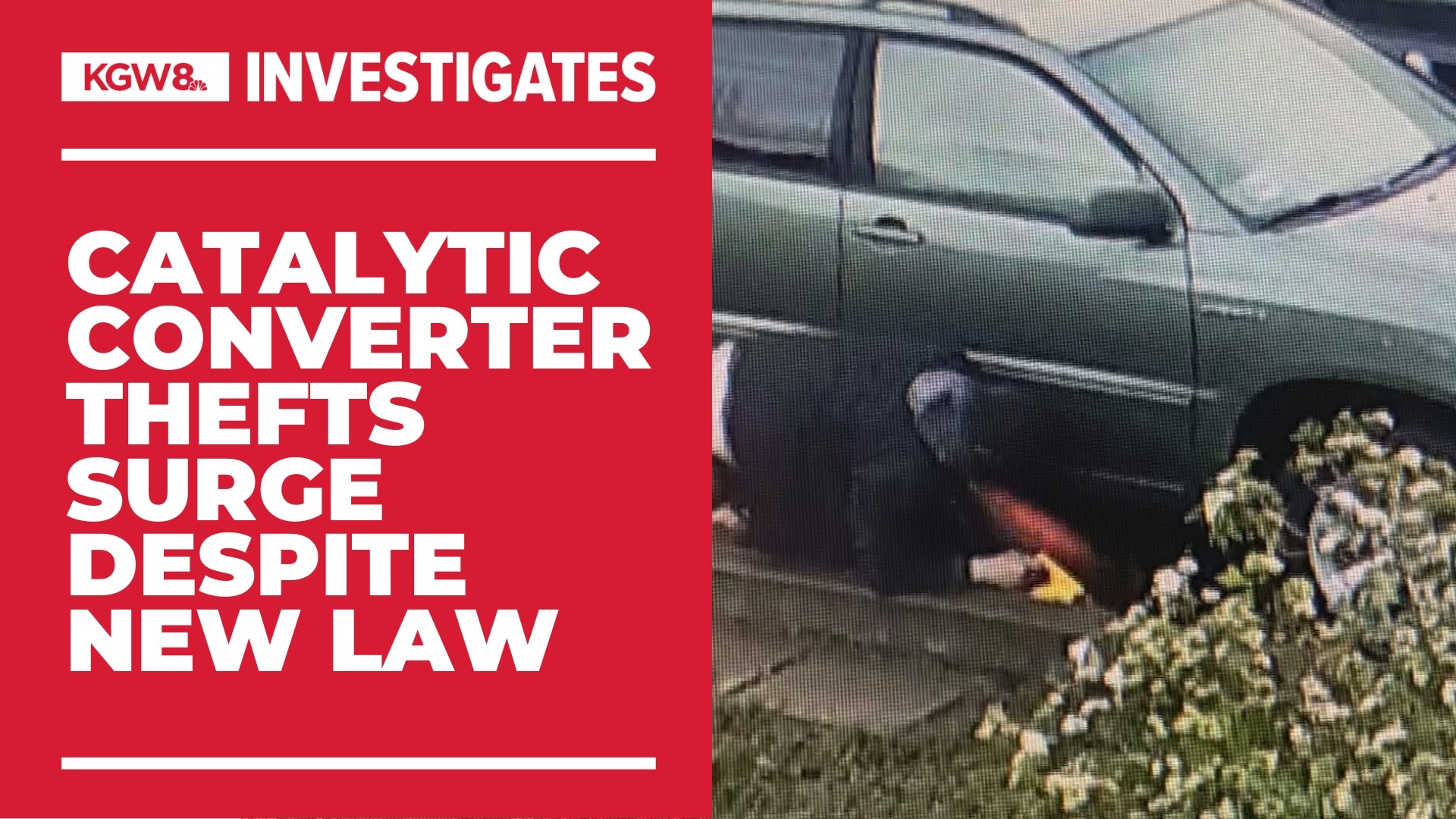Catalytic converter thefts surging despite new law
Data shows reported catalytic converter thefts are matching 2021 levels. Mechanics said they're receiving multiple cars with stolen parts every day.
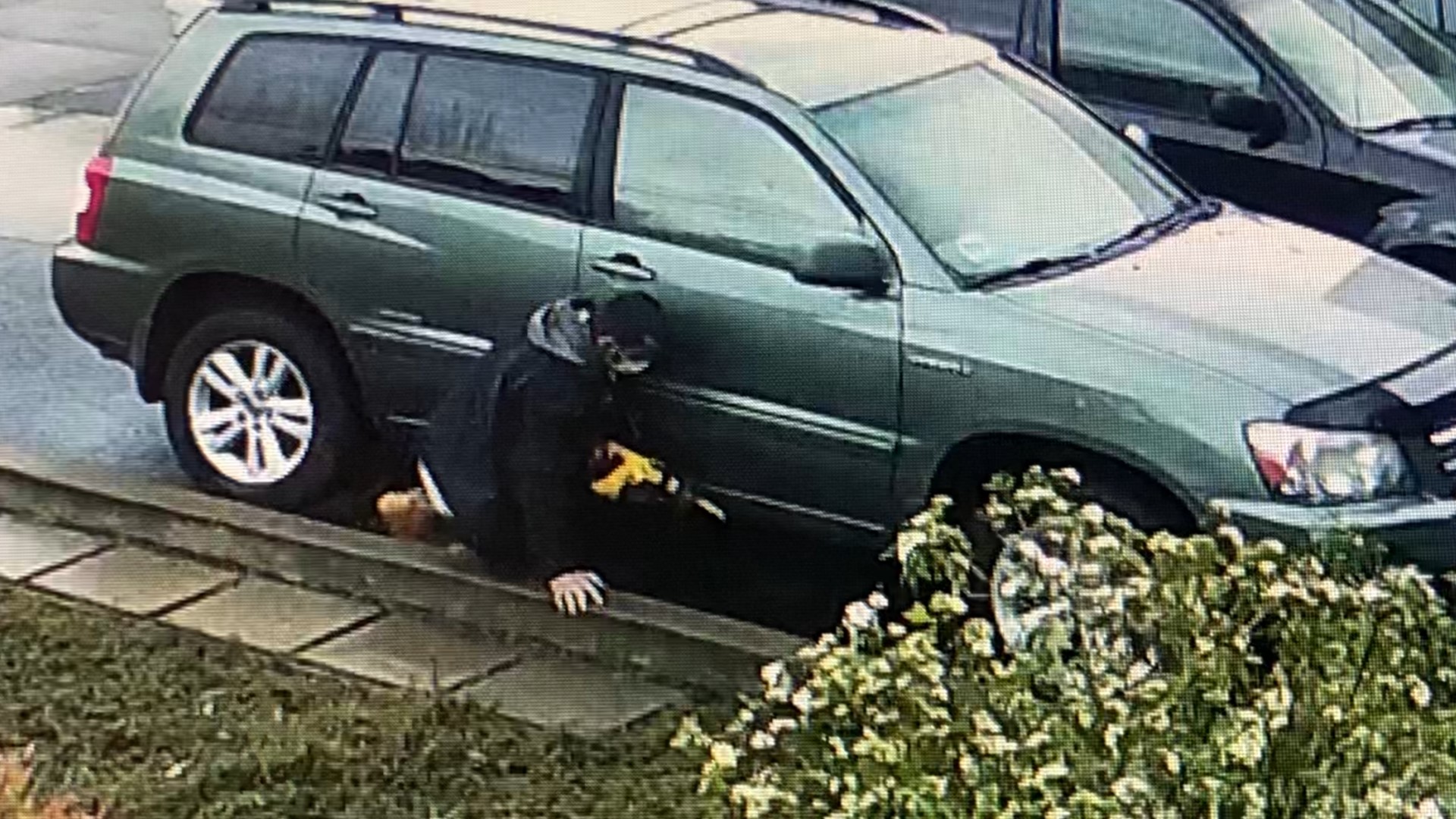
Donna Gramont enjoys walking to work, but it used to be an option rather than a necessity.
Now, she commutes to her East Portland job on foot because thieves stole her catalytic converter when her car was parked outside her office.
It's the third time her catalytic converter has been cut off and taken since September.
"I can't imagine that everything isn't escalating," Gramont said. "The third time it happened I drove away. Heard that sound, stopped, got out of my car, and I screamed."
The Problem 'I feel like somebody's target right now'
Catalytic converters are part of a vehicle's exhaust system found underneath a car that helps filter out emissions that pollute the environment.
Over the past three years, catalytic converters thefts have skyrocketed in Oregon and across the country. As the value of the metals they're made of has climbed, so has the number of thefts.
In response, Oregon lawmakers passed a bill to try and curb thefts, which took effect on Jan. 1, 2022.
Starting the year, scrap metal businesses in Oregon can only buy catalytic converters from licensed commercial sellers or the vehicle's proven owner.
The hope was this law change would cut down on people stealing parts from vehicles and selling them at a scrap yard down the street for cash.
However, through the first four months of 2022, the law change has made little to no difference on the number of reported thefts.
Gramont showed a video of the latest heist that disabled her vehicle. Someone backed up a car behind hers, blocking the view from the gas station across the street.
A man wearing dark clothes and a mask jumped out of the passenger seat, crouched down beneath Gramont's passenger side of her Toyota Highlander, and used a power tool to cut off and steal the converter.
The theft took 27 seconds. The people in the car swiftly drove away with the catalytic converter that Gramont had painted orange, hoping to deter thieves.

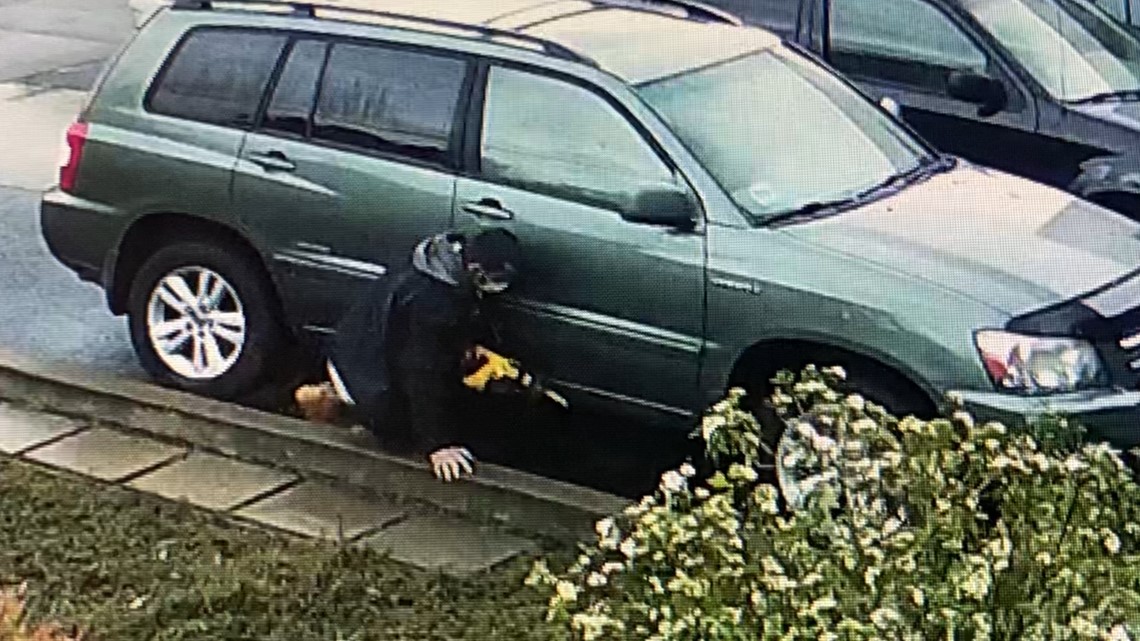
"I actually live close enough to work where I can actually walk to work, but I know not everyone can do that," Gramont said. "And I just keep telling myself, 'It's just a car,' but for some reason, watching that third time and seeing the person do it was very hard for me."
Driving without a catalytic converter is illegal and with the high number of thefts, it's not easy to repair or replace one right now, either.
Each time her catalytic converter has been stolen, Gramont said she's waited months for repairs.
It's a product of what Irina Russu, service advisor at Ron Tonkin Toyota in Portland, calls the worst part of her job.
The Backlog 'It's slowing down our shop'
"You hear that loud sound pulling up and you just know it’s about to be a really tough conversation," Russu said.
The Ron Tonkin Toyota service center used to replace a car's catalytic converter due to natural wear and tear once every two or three weeks.
Now, they're flooded with people needing catalytic converter repairs.

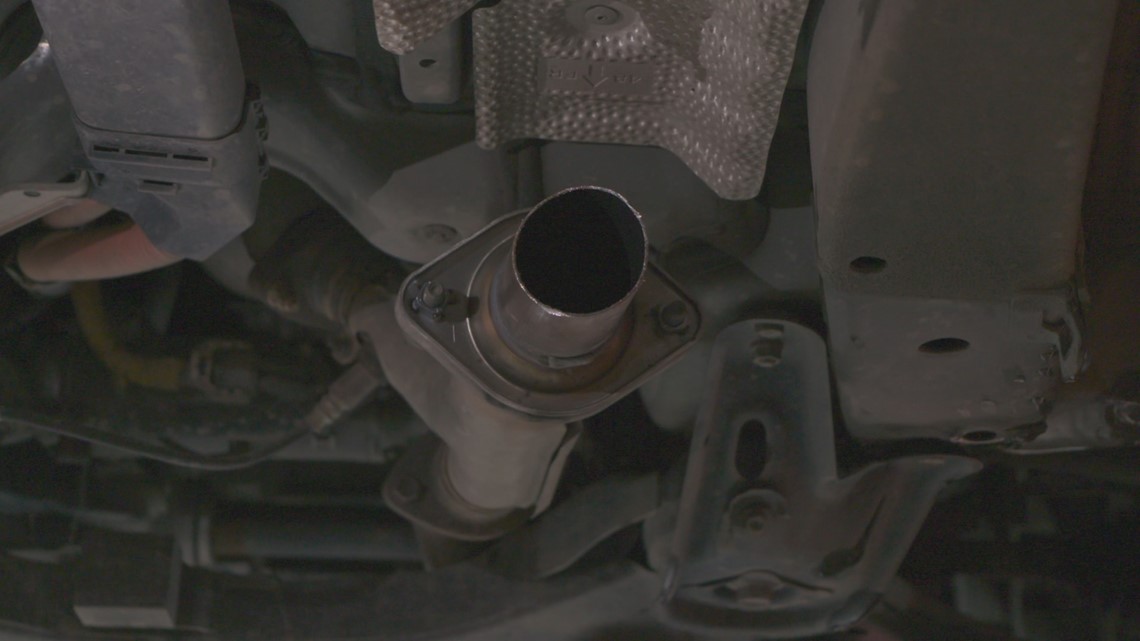
"At our dealership alone, we get five [cars] a day, on average, and there are how many dealerships in the area that are experiencing the same thing," Russu said. "There are just no words to describe how bad it is."
Depending on an owner's car insurance, deductible and the damage on the exhaust system, it can cost hundreds or thousands of dollars to replace a catalytic converter.
Despite the desperation from car owners for a quick fix, Russu said the increase in thefts has created a waiting game for new parts.
"It’s putting a really bad backorder on the catalytic converter shipments, to where we have to wait weeks, sometimes months, for parts to come in," she said.

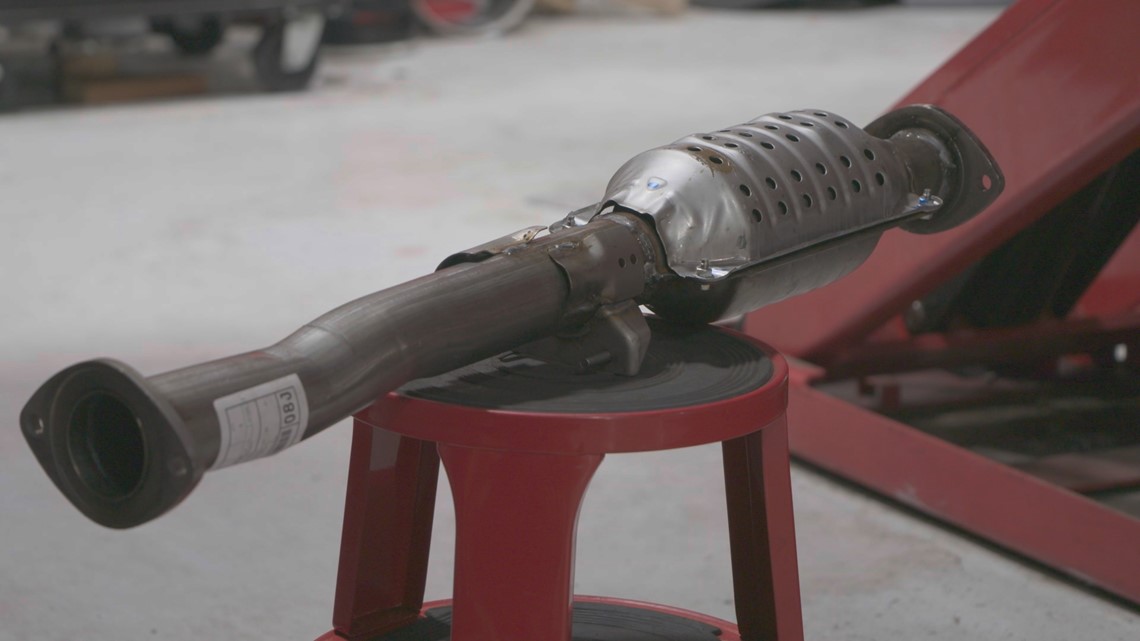
The spike in cars needing catalytic converter servicing then affects the rest of the maintenance schedule, Russu said.
"It’s slowing down our shop to where we’re having to have set aside [technicians] that are able to diagnose what parts are missing, which electronic things are being cut out because they’re taking O2 sensors as well," she said. "What was less than 1% of our business has become 5 to 10% of our business."
In a search for solutions, vehicle owners have also turned to after-market parts and looked into theft-deterrent protective casing, Russu said.
Based on the service center's repair list and daily intake, she estimated many more catalytic converters are being stolen than are being reported to police.
The Data 'The fact is, it's not improving'
Since Jan. 1, 2020, the Gresham Police Department (GPD) has received 600 reports of catalytic converter thefts, with 432 of those reports, or 72%, coming in the last year.
GPD reported thefts peaked with 55 reported in September 2021. The department is averaging more than 34 thefts a month so far in 2022.
The Beaverton Police Department averaged less than one reported theft per month in 2020. Now, the department receives a report of a stolen catalytic converter nearly every day.
A Portland Police Bureau (PPB) public information officer said analysts didn't have time to count how many catalytic converters are stolen in the city, adding: "I can't think of another vehicle part that is reported stolen more frequently."
A backlogged public records office did not respond to KGW's request for data, illustrating how the scope of the problem in Oregon's largest city may be unknown.
Why are there so many thefts?
"It's a crime that is committed extremely fast, takes little to no skill, and it’s a quick payoff for what they’re getting out of it," said Sergeant Clint Chrz, with the Hillsboro Police Department (HPD).
Chrz pointed out the value of certain metals used to make catalytic converters, like Rhodium, has skyrocketed over the past two years.
"I don’t know what the silver bullet will be, but when those metals become less valuable, thieves will stop stealing," he said.
He said enforcement can be difficult as some thefts take less than 30 seconds.
Hillsboro police recently arrested a man for stealing a catalytic converter, but Chrz attributed that to a person who watched the crime occur and called it in, and officers were close enough to respond before the suspect drove away.
"Since January 2020, the Hillsboro Police Department has arrested only four people for this crime, and I would imagine that’s very similar to other agencies in our state and outside of our state," Chrz said.
Additionally, when stolen catalytic converters are recovered, it can be difficult to connect the parts back to their owners.
“There’s not a VIN number or a license plate on them, so we know these are obviously stolen, but the District Attorney’s office needs a victim to prosecute most crimes and with theft you have to have a victim to prosecute," Chrz said.
Hillsboro police received, on average, less than two reports of catalytic converter thefts each month in 2020. HPD received about 13 per month in 2021.
So far in 2022, HPD has received an average of 20 reports of catalytic converter thefts per month through the first four months of the year.

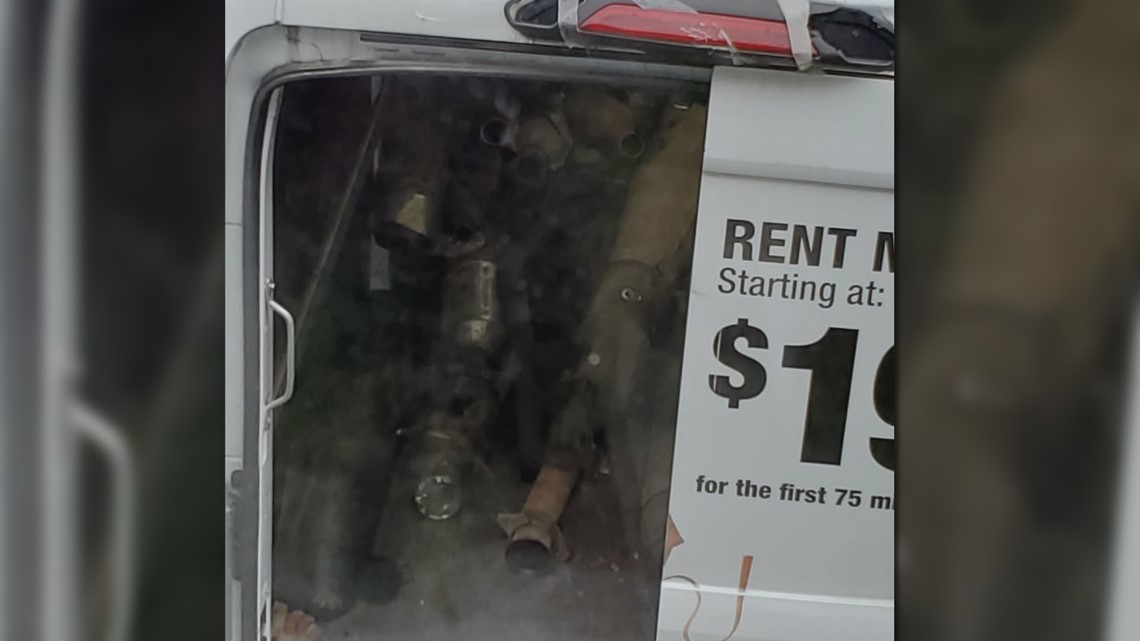
Chrz suspects catalytic converters are being loaded up and shipped out of the state in box vans or rental trucks.
"From what we’re seeing, they’re not being sold in Oregon. We think they’re being transported out of state and potentially out of the country," he said.
The Law and What's Next 'We need to look at it as a bigger picture'
The data is concerning for Oregon lawmakers like state Sen. Chris Gorsek.
He sponsored Senate Bill 803 which went into effect in January, making it illegal for Oregon scrap metal businesses to buy catalytic converters unless the seller proves ownership.
Gorsek hoped stricter rules would deter thefts.
“So far the jury... is still out," he said, explaining that he wants to see more than four months of data before making conclusions.
However, after the first four months of this 2022, Sgt. Chrz said it’s clear that bill is not helping much and it won't be the solution.
"Unfortunately, the reality is at the Hillsboro police department, we have not seen a decrease in catalytic converter thefts since that law took effect in January. We’ve actually seen a slight increase," he said.
Gorsek said the data could indicate that the network to steal and sell catalytic converters is more complex.
"We're looking into the possibility that this is a much more organized operation than we realized," Gorsek said. "And so we’ve taken this first shot but if it takes another shot or two, I’m certainly up for doing that."
He said officer shortages in police agencies across the state, as well as backlogs in the criminal justice system, aren't helping the problem.
"I would guess based on where we’re at right now that we’re going to have to come back at this in the next session for sure," Gorsek said.
Gorsek said lawmakers "shouldn't have problems getting bipartisan interest" on this topic, and they may need to look at more funding for law enforcement to pursue thefts more aggressively.
In Portland, Donna Gramont said she called the non-emergency line and waited more than an hour on hold without response from PPB after her first catalytic converter theft.
She's said she's filed three police reports online, one for each theft, but has yet to be contacted by police.
"[Thieves] are getting caught on camera and nobody is coming after them so they just seem to keep doing it," Gramont said.
As for future preventative measures, Gramont is paying hundreds of dollars to add a protective shield over her catalytic converter to hopefully deter thieves.
Chrz said it could be helpful to drivers to engrave their vehicle's VIN or license plate number onto their catalytic converter so if police recover stolen parts, they could be traced back to them.
Outside of that, he recommended neighbors look out for each other and watch for anything suspicious in parking lots, driveways, or other areas.

